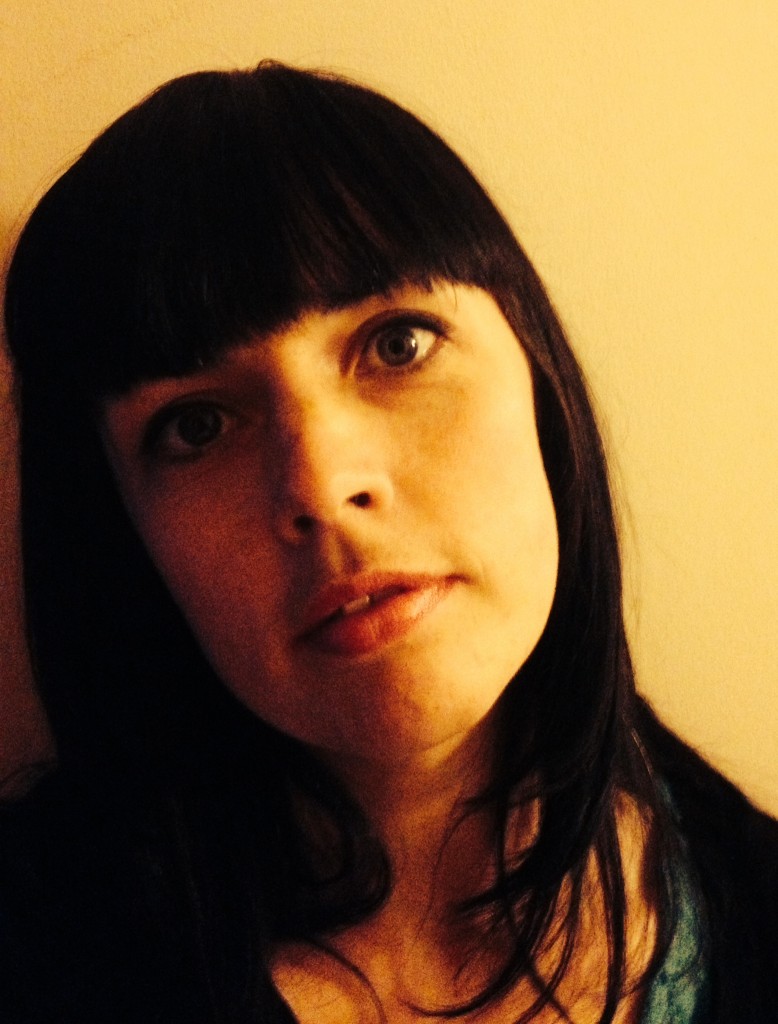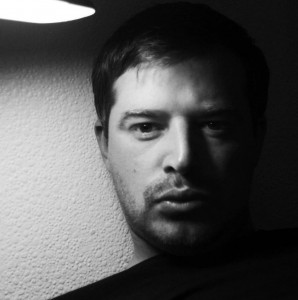It is well-understood that the language we speak shapes our perception, the structure of the language affecting the ways in which the speaker conceptualises his or her world. In this regard, bilingualism has been shown to have many cognitive advantages including an additive effect on a person’s creativity. Doireann Ní Ghríofa, a bilingual poet writing both in Irish and in English, exemplifies this. Although the written poems appear on the page in a single language, the thought processes to create them are borne of a far more complex interplay. I like to think of this interplay occurring in a type of cognitive marshlands, a ghostly transition zone between water and land with its own unique emotional ecosystem. Doireann’s poems, it seems to me, dwell in that world, and emerge from it like a rare and endangered species might emerge from its wetlands habitat through an early morning, low-lying mist.
— Gerard Beirne
My poem Waking gives voice to a woman waking up in the recovery room of a maternity hospital. At the core of this poem is the sense of disorientation, loneliness and loss that follows a miscarriage. This is an experience that is, sadly, not unfamiliar to me, personally.
I chose to dedicate Waking to the memory of Savita Halappanavar, whose appalling death while under the care of the Irish maternity system left many in shock. She was admitted to hospital while suffering a miscarriage, and despite her repeated requests to terminate her pregnancy, she was denied the procedure that would have saved her life. Savita’s death led to many protests both in Ireland and abroad, where protestors demanded a review of Irish law that prevented her from accessing the abortion that would have saved her life. I would wish nothing more for Savita than to allow her the treatment she needed in order to wake up and draw breath, and it angers and saddens me to live in a country where a woman must die in order for society to effect essential constitutional change.
I am very grateful to the talented filmmaker Peter Madden for interpreting my poem visually with a sensitivity that I believe honours those many, many women who each year suffer the pain of miscarriage in silence. The haunting soundtrack is an original musical composition by guitarist Stephen Moore that adds further depth to the collaboration.
Glaoch/Call is a consideration of modern life and love. I am intrigued by the multiple paradoxes of contemporary life — we are more connected than ever through technology, and yet there often remains a fundamental disconnect between us, an emotional distance, a fundamental interpersonal detachment. This poem arose from dissonance between these opposing constructs, and our collaboration in film seeks to further explore this matter.
—Doireann Ní Ghríofa
.
Waking
.
Recovery Room, Maternity Ward
(for Savita Halappanavar)
The procedure complete,
I wake alone, weak under starched sheets.
As the hospital sleeps, my fingers fumble
over the sutured scar, a jagged map
of mourning stitched into my skin —
empty without and empty within.
Cradling my hollowed womb,
I trace this new wound and weep.
The only sound I hear now is the fading retreat
of a doctor’s footsteps, echoing my heartbeat.
/
Glaoch/Call
.
Glaoch
Ní cheanglaíonn
…………………………aon chorda caol,
aon sreang teileafóin sinn níos mó.
I réimse na ríomhairí,
………………..ní thig liom
do ghuth a bhrú níos gaire do mo chluas.
Ní chloisim tú ag análú. Anois, ’sé an líne lag seo
……..an t-aon cheangal amháin atá fágtha eadrainn
agus titimid
……….as a chéile
………………………..arís
is
……….arís eile.
.
Call
No slender thread,
………………………………no telephone cord
binds us anymore.
Now that our computers call each other,
…………I can’t
…………………..press your voice to my ear.
No longer can I hear you breathe. Now, we are bound only
……………………………..by a weak connection
and we break up
……………………………..and break up
………..and break up.
.
Frozen Food
“The Iceman was carrying a sloe, presumably to eat” –Mandy Haggith
In the frozen foods aisle I think of him,
as I shiver among shelves of plastic-wrapped pizza,
green flecked garlic breads, chunks of frozen fish.
I touch the cold wrappers until my fingers
tingle, until my thumbs numb.
Strangers unpacked his body in a lab and thawed his hand.
His long-frozen fingers unfurled one by one,
his fist finally opened, let go,
and from his grasp rolled
a single sloe.
Ice-black with a purple-blue waxy bloom,
it waited through winters and winters
in his cold fingers.
……………………………………………………….Inside the sloe,
……………………………………………………..a blackthorn stone.
………………………………………………………Inside the stone,
…………………………………………………………….a seed.
In a frozen aisle, white on glass
I watch my breath freeze.
.
The Ledger
a sonnet for Edna O’ Brien
This chapter begins in a pharmacy.
Over the counter, you smooth prescriptions,
weigh powders, pass parcels. You nod shyly,
greet customers, mix tonics and potions.
Yellow liquid pours into glass bottles—
here, cures come from chemical addition.
All summer, you study, fill tins with pills,
dispense tablets, count coins, make medicines.
Summer blooms fade and fall. Rain returns. Bored,
you think up tales with each cream you concoct.
Every time the bell rings over the door,
you conjure symphonies of secret plots.
Name—ailment—payment. Pencil strikes paper,
filling the ledger, each word a step to your future.
.
In the University Library, I open the Book of my Finger
I study the same words again and again.
Smells of damp tobacco and beeswax polish
hover over a hundred desks of beech.
A sudden incision slices my skin,
splits my fingertip—a narrow breach.
The wound is so thin that it barely bleeds
but the slit stings, insists that I look again.
My cracked fingertip turns inside out.
Broken skin become walls, white-limed, gritty.
In the split, the red roof of a cowshed peaks. Doubt
rusts in my blood. I can’t live in this city.
On my palm, a road through streets and roundabouts
leads me home. Under beech trees a bee flits, free.
.
Radioactive Relics
Her papers still hum
in lead—lined boxes labelled Curie
in the Bibliothèque Nationale:
boxes filled with jotters
filled with the spools and loops
and curlicues of her hand
page after page of trials and tests
ideas in metamorphosis
the gleam of polonium and radium
the slow glow of understanding
a century later, her papers
still set our Geiger ticking
like a metal heart.
—Doireann Ní Ghríofa
.
Doireann Ní Ghríofa is a bilingual poet based in Ireland, writing both in Irish and in English. Her poems have appeared in literary journals in Ireland and internationally (in France, Mexico, USA, in Scotland and in England). The Arts Council of Ireland has twice awarded her bursaries in literature. Doireann’s Irish language collections Résheoid and Dúlasair are both published by Coiscéim, and her bilingual chapbook A Hummingbird, Your Heart is available from Smithereens Press. Doireann was the winner of a Wigtown Award (Scotland) in 2012. She has also been nominated for a Pushcart Prize (USA) and her pamphlet of poems in English Ouroboros was longlisted for The Venture Award (UK).
Peter Madden graduated from IADT National Film School, Ireland in 2011. Currently working in photography and video advertising, he also works in short documentary, short film and music videos, editing the award winning short documentary ‘Rose’ in 2011. His own directorial pieces have been screened at Irish and international film festivals. He works with two media based companies; Replayhouse and Little Beast, and has just recently co-created MadBag Films, all based in Dublin, Ireland.


